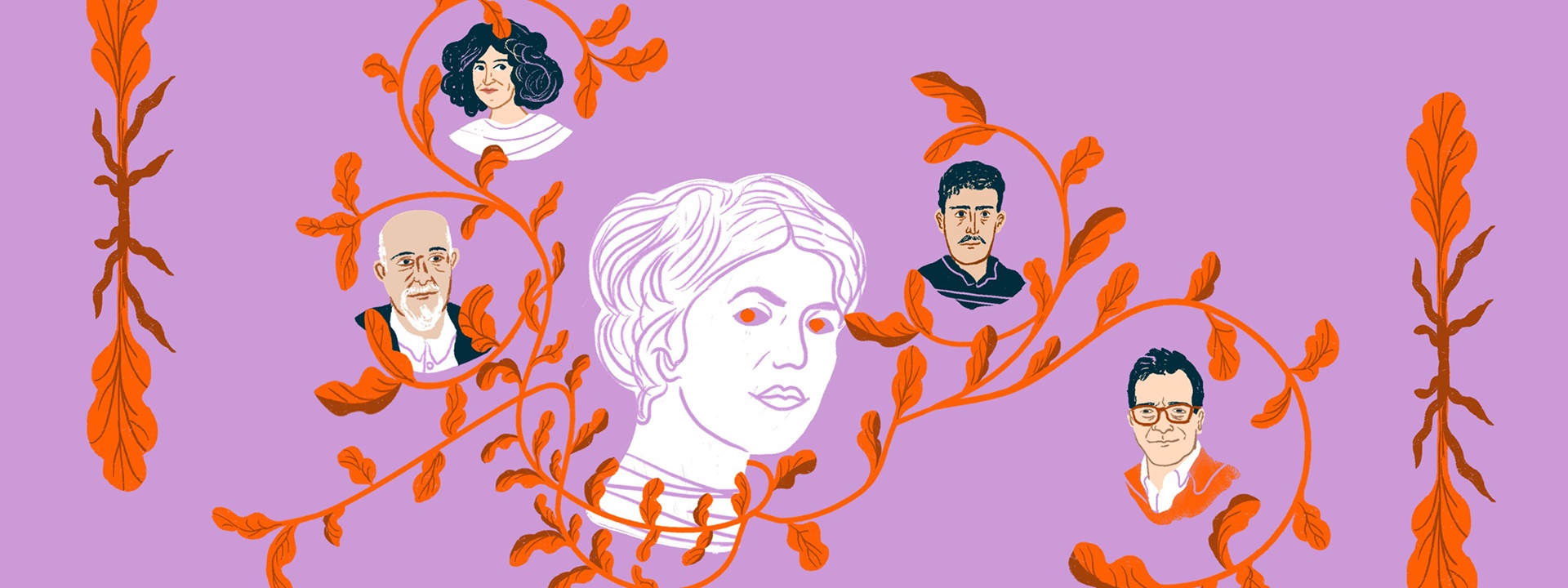Nuoro still holds the prize for being the hometown of the only Italian woman to have – so far — won the Nobel Prize in Literature: Grazia Deledda, in far-off 1926.
A fact that might have much to say about the mechanisms behind awarding the prestigious prize but does not detract from Deledda’s greatness and her role in twentieth-century Italian culture.
Not Just Grazia Deledda
Description
Grazia Deledda was a trailblazer and source of inspiration for generations of writers from the Nuoro region during the twentieth century: a list that includes Salvatore Cambosu, Salvatore Satta, Bachisio Zizi and Maria Giacobbe.
A cultural legacy that is still going strong today: some of the leading figures of the Sardinian Nouvelle Vogue are from Nuoro and environs, and often published, when just starting out, by Il Maestrale, an influential publishing house in the field of contemporary Italian literature.
An especially watchful presence on the Sardinian and Italian intellectual scene is Marcello Fois (Nuoro, 1960), who debuted in 1992 with Ferro recente and Picta (Premio Italo Calvino) and published, six years later, in 1998, Sempre Caro, the first in a trilogy that also includes Sangue dal cielo (1999) and L’altro mondo (2002) and the main character of which is none other than Sebastiano Satta, in a fictionalised tale that goes beyond noir to offer a snapshot of Nuoro between the nineteenth and twentieth centuries. An award-winning novelist as well as poet, essayist and playwright (his play Quasi Grazia, published in 2016, was staged with Michela Murgia in the starring role), Fois was also the co-founder, along with Giulio Angioni, Giorgio Todde and Michela Murgia, of the Isola delle Storie, an important literature festival held each year in Gavoi.
Salvatore Niffoi (1950) was born in Orani and debuted in 1997 with Collodoro, a novel that announced the singularity of his style, which mixes Sardinian and Italian. In 2006, he won the Premio Campiello with Vedova Scalza, a sweeping love story set in an archaic, vindictive, mysterious Sardinia that has reappeared as the backdrop of his subsequent works.
Elvira Serra (1972), a highly regarded journalist at the Corriere della Sera, has more recently also turned her hand to writing novels. From her first, L’Altra. Storia di un’amante (2014), to her most recent, Tutto da vivere (2021), Serra tells stories about people’s lives with a delicate touch, sensitive to her characters’ emotions and psychological profile.
The new generation of writers from the Nuoro region includes Giovanni Gusai (1987), who won the Giulio Angioni Prize in 2017 for the short story Metallo Pesante, and more recently published the novels Come in cielo, così in mare (2021) and Il bordo del mondo (2023). In the latter, we are drawn into life in the outskirts of town, in Nuoro’s Predistràda quarter, where the character’s destinies and lives intertwine, in an intense multi-voice account.
 Nuorese Cultural District
Nuorese Cultural District